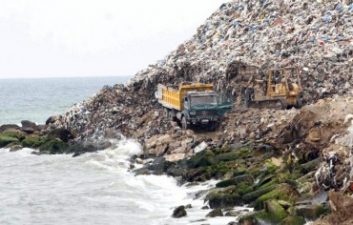 Next Wednesday activists will hold a public forum to democratically demand access to the Horsh Beirut urban park.
Next Wednesday activists will hold a public forum to democratically demand access to the Horsh Beirut urban park.
In 1696, the Horsh Beirut Pine forest used to be as large as 1,250,000 square meters but the Crusaders, Mamluks, Ottomans, and World War II allies each took their turn plundering its timber in order to build ships and weapons. Further damage has been done since then to such an extent that today one of the only urban parks in this concrete jungle has shrunk to a mere 255,000 square meters. Although significantly smaller than it once was, Horsh Beirut could still offer residents of Beirut a retreat from the city smog – if the city hadn’t denied access to it for the last two decades. Activists are now speaking out against what they say is a denial of their inalienable rights. Public property
Ten years ago Beirut’s municipality rehabilitated the park (presumably using taxpayer money) but it still hasn’t been re-opened to the public and no decent explanation has been given.
Activists with Nahnoo, a leading organization that empowers Lebanese youth, have taken up the matter by demanding a democratic public forum.
Esteemed members of the public and academic experts will join municipality representatives to discuss opening access of the park to Beirut’s residents so that they have a space to escape from the endless drone of vehicles and concrete buildings.
A Facebook invitation for more than 2,600 citizens has been established to encourage participation in the forum that is to be held at the Maddina Theater in Hamra, Beirut on the 8th of February. The event next Wednesday is expected to last from 7pm to 10pm.
Organizers claim that “the largest green park in Beirut is a public property and a right for all. Yet, it has been closed for public for more than twenty years and only few people are granted the right to access it.”
The democratic process
But the reasoning behind the closure may not be so simple, which is why Nahnoo invites the public to explore the challenges surrounding Horsh Beirut – the most significant carbon sink in the city.
The event will be attended by Mr. Mohammad Ayoub’s, Nahnoo’s Executive Director, Mr. Eric Bouvard, the municipality of Ile De France in Beirut’s representative, and Mr. Nizar Saghie, the Beirut municipality’s lawyer.
Mr. Gilbert Doumit will moderate the forum, which will be followed by a small cocktail party and an exhibition of a collection of photographs taken of the park over the years.
While Egyptians march against police brutality yet again, and al-Assad continues his terrible crack down in Syria, Lebanese residents are turning to a peaceful democratic process in order to achieve their goals. We are definitely rooting for them.
:: Nahnoo
image via Sarah Owermohle, Flickr
More on Lebanon’s Concrete Jungle and Green Space:
Beirut’s Rooftop Revolution (Interview)
Professor Urges Regulations to Prevent Further Fatal Building Collapses in Beirut
Beirut Activists Try to Green the Grey of Their Concrete Urban Environment



